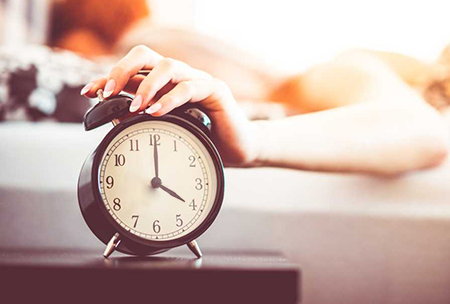Are you one of numerous people who wake up between 2 and 4 am? After you wake up, it may take some time for you to fall back to sleep — if ever you’re able to.
The quality of your sleep is poor, and you don’t feel refreshed and restored when you wake up. You may even be getting sick more often as a result!
Truth is, you’re not alone, as waking up at 4 AM is a common problem for many people, and it can be caused by a variety of factors, physicians say.
Sleep expert, Dr. Brian Lum of Functional Healthcare Institute warns that sleep disturbances are an often ignored yet common problem that can lead to more health issues.
Here are a few causes of disturbed sleep, according to experts:
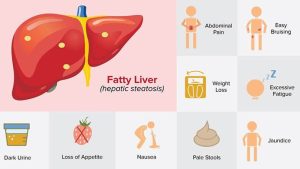
Fatty liver disease
Usually, the most common cause of waking up between 1-4: 00 am is a liver problem, according to Dr. Lum.
It may be that you have liver inflammation or fatty liver disease, also known as non-alcoholic fatty liver disease. Fatty liver disease is a condition where fat builds up in your liver because of a poor diet, blood sugar problems, or accumulated toxins.
It is estimated that fatty liver disease affects 20-30% of the population in Western countries. Often, there are no clear symptoms of fatty liver disease.
Fatty liver disease is a condition where fat builds up in your liver because of a poor diet, blood sugar problems, or accumulated toxins
“When your liver becomes burdened by accumulated fat, it can no longer efficiently and effectively cleanse and detoxify your body. Since toxins cannot be safely neutralized and removed from the body, the risk of degenerative diseases increases. Fatty liver disease almost always coincides with insulin resistance and the development of type 2 diabetes,” the physician said.
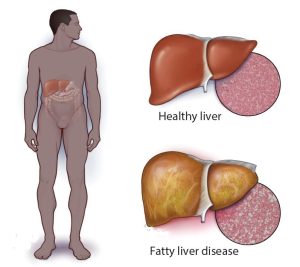
What does the liver have to do with waking up between 1-4am?
Our circadian rhythm is our master ‘internal clock’ and ensures that all of our organs and internal biological systems work harmoniously together. It is during the period between 1 and 3 AM that the liver works it’s hardest to cleanse and detoxify our body while we sleep.
“So, if your liver is slow and stagnant from an accumulation of fat during the liver cleansing time (1-4am), the body will try to allocate more energy for detoxification and trigger your nervous system to wake you up,” the physician explains.
It is during the period between 1 and 3 AM that the liver works it’s hardest to cleanse and detoxify our body while we sleep
Consequences of fatty liver disease
If you have fatty liver disease, your chances of developing type 2 diabetes and heart disease dramatically increases. Your sleep can be impacted, and your energy levels can drop.
It’s common for patients with fatty liver disease to have persistent fatigue. Also, when a person has fatty liver disease, it can be challenging to lose weight. The liver must be healthy to effectively burn stored fat.

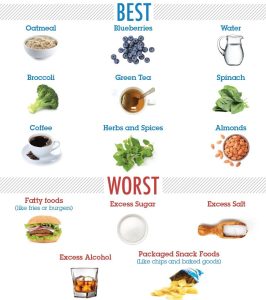
What you can do
A functional medicine doctor does not only address a liver problem but can help support the healthy function of your entire body. That means if you have an underlying bacterial infection in your intestines that is causing your liver to be overwhelmed, addressing that infection will speed up liver healing.
You can also help your body restore optimal liver function by overhauling your diet. A diet that is high in refined grains, high-fat animal protein, conventional (not organic) produce and refined sugars will burden your liver with too many toxins and too much fat.
A diet rich in fruits, vegetables, nuts, seeds, lean proteins and healthy fats will provide your liver (and the rest of your body) with much needed nutritional support for optimal function.
if your liver is slow and stagnant from an accumulation of fat during the liver cleansing time (1-4am), the body will try to allocate more energy for detoxification and trigger your nervous system to wake you up
Menopause
According to Sleep Medicine Physician Dr. Abhinav Singh, hormonal changes during menopause can also cause disrupted sleep.
“Symptoms of menopause are caused by decreasing production of certain hormones and often include nighttime and early morning awakenings,” Singh explains, adding, “Some awakenings may coincide with hot flashes, night sweats, or insomnia.”
The physician warns that, for some women, nighttime awakenings persist after menopause, due to continued hot flashes or an increased risk for obstructive sleep apnea.
avoid exercising too close to bedtime, as this can make it difficult to fall asleep
Sleep apnea
Dr. Lum says ruling out sleep apnea is important. Ask your partner if you snore, if you do, there’s an excellent chance you have sleep apnea. “How loud someone snores is often seen as only a nuisance, but it could potentially be a sign of a serious problem,” Lum warns.
He adds that sleep apnea independently increases people’s risk of dying from heart disease and developing type 2 diabetes; and that it is also correlated strongly with obesity.
Stress or anxiety
Another reason why people wake up at 4 AM is due to stress or anxiety. “When we are stressed or anxious, our bodies release cortisol, a hormone that can interfere with our sleep.
“This can cause us to wake up in the middle of the night and have difficulty falling back asleep,” says Dr. Singh.
To prevent this, he recommends practicing relaxation techniques before bed, such as meditation or deep breathing exercises.
hormonal changes during menopause can also cause disrupted sleep
Medical conditions
Other medical conditions that can disrupt sleep include acid reflux, restless leg syndrome, and chronic pain. If you suspect that a medical condition is causing your sleep disturbances, it is important to talk to your doctor.
Environmental factors
Environmental factors can also play a role in waking up at 4 AM. For example, noise or light pollution can disrupt sleep and cause us to wake up in the middle of the night. To prevent this, try using earplugs to block out noise. You can also use blackout curtains or an eye mask to block out light.
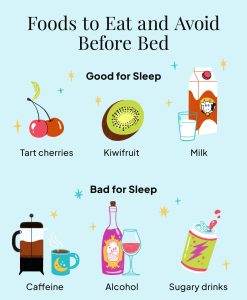

Lifestyle factors
Lifestyle factors such as diet and exercise can impact our sleep.
Eating heavy or spicy foods before bed can cause indigestion and disrupt sleep.
Caffeine and alcohol can also interfere with sleep, so it is best to avoid them before bed.
Exercise, on the other hand, can improve sleep quality and help regulate your sleep cycle. However, it is important to avoid exercising too close to bedtime, as this can make it difficult to fall asleep.
Conclusion
There are many reasons why people wake up at 4 AM. By establishing a consistent sleep schedule, practising relaxation techniques, addressing medical conditions, addressing environmental factors, and making lifestyle changes, you can prevent waking up at 4 AM and improve the quality of your sleep.

